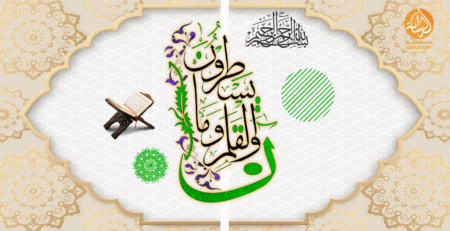Islam and Its Influence on Political and Social Situations
Islam, a religion built upon the theological doctrine of total submission to God and the teachings of the Prophet Muhammad, exerts a profound influence on both political structures and social dynamics across the globe. From shaping governance systems to influencing cultural norms, Islam’s impact extends far and wide, warranting a closer examination of its role in contemporary society.
Introduction to Islam
Islam, one of the world’s major monotheistic religions, traces its origins to the teachings of the Prophet Muhammad in the 7th century CE. With over a billion followers worldwide, Islam is deeply ingrained in the cultural, political, and social fabric of numerous nations.
The Concept of Monotheism in Islam
Central to Islam is the belief in monotheism, the idea of one God (Allah) as the ultimate authority. This monotheistic principle underpins Islamic theology and serves as the foundation for Islamic practices and rituals.
Influence of Islam on Political Structures
Historical perspective
Throughout history, Islamic civilizations have witnessed the fusion of religion and governance, with caliphates and empires governed by Islamic principles. The caliphate system, in particular, played a significant role in shaping political structures in the medieval era.
Modern-day implications
In contemporary times, the influence of Islam on political structures varies across different regions. Some nations adopt Islamic governance systems, while others operate under secular frameworks with varying degrees of Islamic influence.
Islam’s Impact on Social Dynamics
Family structure and values
Islamic teachings emphasize the importance of family cohesion, with marriage and family life holding a central place in Islamic ethics. Concepts such as respect for parents, kindness to neighbors, and communal solidarity shape social interactions within Muslim communities.
Community cohesion
The concept of ummah, or the global Muslim community, fosters solidarity and mutual support among Muslims worldwide. This sense of belonging transcends geographical boundaries and promotes cooperation and collective action within Muslim societies.
The Role of Sharia Law
Sharia, or Islamic law, serves as a moral and legal framework governing various aspects of individual and communal life, including family matters, commerce, and criminal justice. While interpretations of Sharia vary, its influence is felt in many Muslim-majority countries.
Islam and Governance
Theocracy vs. secularism
The relationship between Islam and governance is a complex one, with debates over the ideal balance between religious authority and secular governance. Some nations adopt a theocratic model, where Islamic law holds sway, while others prioritize secularism and separate religion from the state.
Case studies of Islamic governments
Countries like Saudi Arabia, Iran, and Pakistan provide examples of diverse approaches to integrating Islam into governance. Each nation grapples with its unique challenges in reconciling religious principles with modern governance structures.
Islam and Human Rights
Perception vs. reality
Islam’s stance on human rights is often a subject of debate and scrutiny, with perceptions varying widely. While Islam advocates for justice, equality, and compassion, interpretations of Islamic law and cultural practices sometimes clash with contemporary human rights standards.
Challenges and debates
Issues such as women’s rights, freedom of expression, and religious minorities’ rights remain contentious topics within Muslim-majority societies. Debates continue regarding the compatibility of Islamic principles with universal human rights norms.
Islamophobia and its Effects
The rise of Islamophobia, fueled by misinformation and stereotypes, poses significant challenges for Muslims globally. Discrimination, hate crimes, and marginalization undermine efforts to foster interfaith harmony and societal cohesion.
Islamic Revivalism and Its Political Consequences
The resurgence of Islamic identity and activism has profound implications for politics and society. Movements advocating for a return to Islamic values and principles seek to influence governance, public policy, and societal norms.
Islamic Movements and Social Change
Islamic movements, ranging from grassroots activism to organized political parties, play a pivotal role in driving social change. These movements mobilize communities around issues such as poverty alleviation, education, and social justice.
Interplay between Islam and Global Politics
Islam’s influence extends beyond national borders, shaping geopolitics and international relations. Issues such as the Israeli-Palestinian conflict, the war on terror, and migration patterns highlight the interplay between Islam and global politics.
Islam in the Digital Age
Social media activism
The rise of social media platforms has transformed how Muslims engage with their faith and the wider world. Online platforms facilitate religious discourse, activism, and community-building on a global scale.
Online religious discourse
The internet provides a platform for diverse voices within the Muslim community to express their views and interpretations of Islam. Online religious scholars, bloggers, and influencers contribute to a vibrant digital ecosystem of religious discourse.
Addressing Misconceptions about Islam
Combatting stereotypes and misinformation is crucial in fostering understanding and mutual respect among people of different faiths. Education, interfaith dialogue, and media literacy efforts are essential in challenging Islamophobic narratives.
Future Outlook: Islam’s Evolving Influence
As the world continues to evolve, Islam’s influence on political and social dynamics will undoubtedly undergo further transformation. Navigating the complexities of tradition, modernity, and globalization will shape the future trajectory of Islam’s role in society.
Conclusion
In conclusion, Islam’s influence on political and social situations is multifaceted and far-reaching. From governance structures to social norms, Islamic principles and teachings shape the lives of millions around the world. Understanding and engaging with Islam in all its complexity is essential for fostering a more inclusive and harmonious global community.
Unique FAQs
- Is Islam compatible with democracy?
- While some Islamic nations have democratic systems, the compatibility of Islam with democracy remains a topic of debate. Islamic principles such as consultation (shura) and accountability are often cited as compatible with democratic ideals.
- How does Islam view gender equality?
- Islam espouses principles of equality and justice for all individuals, regardless of gender. However, interpretations of Islamic teachings vary, leading to diverse perspectives on gender roles and rights within Muslim communities.
- What role does Islamic finance play in the global economy?
- Islamic finance operates based on principles that prohibit interest (riba) and unethical investments. It has emerged as a viable alternative to conventional banking and is increasingly influential in the global financial landscape










Leave a Reply